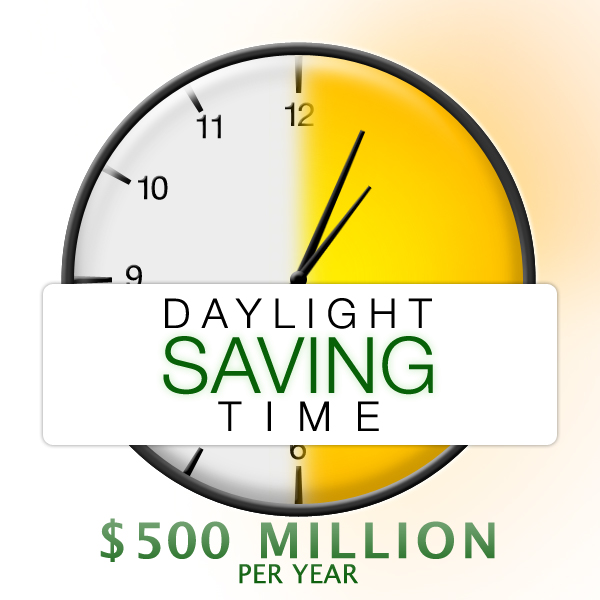Markey: Time Really Is Money During Daylight Saving Time
Markey: Time Really Is Money During Daylight Saving Time
After Long Winter, Spring Brings Smiles and Savings Alike from Extension of Popular Program
In the middle of the night on Sunday, Daylight Saving Time will go into effect. The next day, evening sunshine will last longer, and American families from across the country will start savings hundreds of millions of dollars on their energy bills. All from an extension of the program co-authored by Rep. Edward J. Markey (D-Mass.).
“We can’t count the accumulated smiles from an extra hour of sunshine, but we can count the dollars,” said Rep. Markey. “The first real moment of spring is no longer the equinox, it’s when we reset our clocks. Daylight Saving Time marks the end of a long winter, and the beginning of spring.”
While there is no pending study quantifying happiness gained from the program, a study completed by the Department of Energy says that the extension of Daylight Saving Time saved American families nearly $500 million and 2.9 million barrels of oil during the extension of the program in 2007, according to a government report.
“When there’s still sunlight, there’s less reason for artificial light,” said Rep. Markey. “The results are lower energy bills, less pollution, and more reasons to stay outside.”
As part of the 2005 Energy Bill, Markey and Rep. Fred Upton (R-Mich.) amended the Uniform Time Act of 1996 to increase the portion of the year that is subject to DST, providing longer hours of daylight and helping consumers cut back on peak-hour electricity usage. The Markey-Upton amendment extended the duration of DST in the spring by changing its start date from the first Sunday in April to the second Sunday in March, and in the fall by changing its end date from the last Sunday in October to the first Sunday in November.
The amendment required that the Department of Energy prepare a report evaluating the impact of the extended DST program.
The key findings of the DOE report, issued in October 2008, included:
--The total electricity savings of Extended Daylight Saving Time were about 1.3 Tera Watt-hour (TWh). This corresponds to a reduction in total use per individual of 0.5 percent per each day of Extended Daylight Saving Time.
--These savings translate to $498 million in electricity savings and reduced oil usage of 2.9 million barrels of oil.
--During Extended Daylight Saving Time, electricity savings generally occurred over a three- to five-hour period in the evening with small increases in usage during the early-morning hours.
The full DOE report can be found here: http://www1.eere.energy.gov/ba/pba/pdfs/epact_sec_110_edst_report_to_congress_2008.pdf
The Select Committee was active during the 110th and 111th Congresses. This is an archived version of the website, to ensure that the public has ongoing access to the Select Committee record. This website, including external links, will not be updated after Jan. 3rd, 2010.
![]() del.icio.us
del.icio.us
![]() Digg this
Digg this
![]() Reddit
Reddit
![]() Stumbleupon
Stumbleupon




